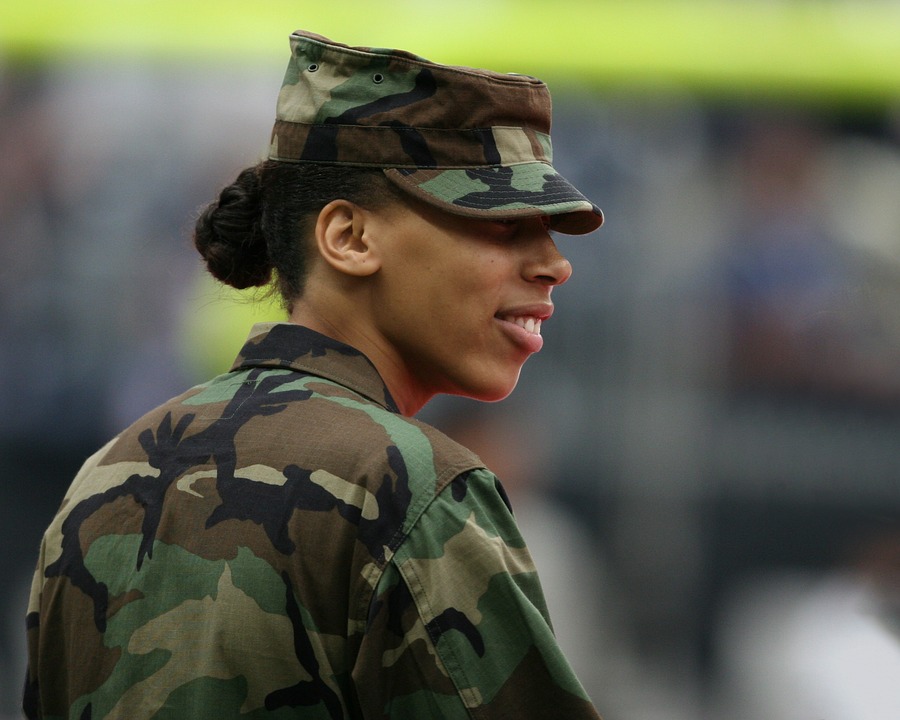
Regardless of whether you’re a mom who’s thinking of joining the military, a servicewoman who’s thinking of becoming a mom, or anywhere in between, you may have wondered how you can blend these two wildly different roles in your life. How can you be a mom to a nursing infant while also serving your country in the military? Will you have legal protections when you need to breastfeed or express milk for your child during work hours?
While not every mother and not every infant can successfully nurse, your military service shouldn’t be the reason you can’t nurse your child. The advantages of breastfeeding for your child’s health—and your own health and productivity—are well documented. But it’s hard enough being a woman in the military, much less being a pregnant woman and then a new mom. What help can you get from the military after your child’s birth and during your return to service?
Parental Leave and Deployment Deferral
 Under any branch of the U.S. military, you’ll be allowed 12 weeks of paid maternity leave. While fathers aren’t granted the same amount of time off, paternity leave was expanded in 2016 from 10 days to 14 days. This benefit will probably continue to increase in the future. The military has recognized the financial and security losses it suffers when it loses servicemembers to private employers that offer greater flexibility in family planning. A trend toward improved leave and child care policies may protect the military’s investments in training and maintaining its forces.
Under any branch of the U.S. military, you’ll be allowed 12 weeks of paid maternity leave. While fathers aren’t granted the same amount of time off, paternity leave was expanded in 2016 from 10 days to 14 days. This benefit will probably continue to increase in the future. The military has recognized the financial and security losses it suffers when it loses servicemembers to private employers that offer greater flexibility in family planning. A trend toward improved leave and child care policies may protect the military’s investments in training and maintaining its forces.
Thankfully, military women receive at least another 6 months of deferred deployment upon their return to service after maternity leave (12 months for women serving in the Navy). During that time, women are exempt from any deployment and can mostly stay near their infants, making it easier to continue to breastfeed. However, field training exercises and school assignments are not considered deployment, so new mothers can be required to participate in these assignments any time after they return to service.
Of course, it’s difficult enough being a new mom. Nursing can be stressful and challenging even while you’re on leave and home with your child. And returning to work is one of the hardest phases of motherhood whether you’re nursing or not. When you’re not returning to a desk job but instead to uniformed service in the military, how can you maintain both of your roles? Wouldn’t it be easier to just stop nursing your child at that point?
Why Breastfeed, Anyway?
As the Army summarized in its Revised Breastfeeding and Lactation Support Policy, “breastfeeding has significant health, nutritional, immunologic, developmental, emotional, social, and economic benefits for both mother and child.” Perhaps the strongest reason for employers, including the military, to value nursing is that breastfed infants have stronger immune systems, causing their parents to miss fewer work days. The Navy’s guidance points out that “the Surgeon General of the United States has emphasized breastfeeding as one of the most important contributors to infant and maternal health.” Further, military survey data indicates that “active duty servicewomen exceed the national target for the initiation of breastfeeding yet shows marked decline in the duration and continuation of breastfeeding at two weeks and beyond.” In other words, plenty of military women start out nursing but then quit while their babies could benefit from continuing.
In response to these demonstrated benefits, the military provides lactation consultants for military mothers to encourage them to start breastfeeding and to aid them in continuing. But, as a practical matter, how do you continue nursing when you return to service?
Military Policies and Possibilities
First, if you can keep your child in day care near where you are stationed, you may be able to directly breastfeed on a regular schedule. If not, you will have to pump your breast milk while you are at work and store enough milk for your child to drink during the day. The possibilities and requirements for provision of lactation facilities vary between branches of the military.
The Coast Guard regulation is typical. It specifies that mothers should be provided with a “private clean room…[that] shall be equipped with electrical outlets, shall include a table and chair and should be located as close as possible to a water source.” That area may be a bathroom or a multi-purpose room “as long as there [are] measures to ensure privacy.” Mothers are also granted “access to cool storage (ideally refrigeration),” where available, though a servicewoman may be required to provide her own cold packs for storage of expressed milk. Finally, “lactating servicewomen should be afforded some flexibility for pumping, balancing [their] needs with mission execution.”
Similarly, the Marine Corps regulation requires that a nursing marine should be “at a minimum, afforded the availability of a clean, secluded space (not a toilet space) with ready access to a water source for the purpose of pumping breast milk.” However, while breaks should be allowed as needed, “supervisors and lactating servicewomen will collaborate to keep to a minimum the amount of time required for milk expression.”
For more specific information, visit Breastfeeding in Combat Boots. This nonprofit, dedicated to educating and supporting lactating women in the military, provides excellent on-the-ground suggestions for how to navigate a multitude of unique situations, such as field training exercises.
Breastfeeding in Uniform?
What if you are out in uniform with your hungry child and you need to breastfeed him or her right now? Is your right to nurse your child in public protected even when you’re in your military uniform? This has been a subject of considerable controversy, though societal views are gradually shifting to acceptance of public breastfeeding.
There still aren’t standard regulations on breastfeeding in uniform, so you may encounter resistance. Be aware of your branch’s standard uniform regulations and do your best to comply with them while nursing. Generally, uniform regulations prohibit rumpling or unbuttoning your uniform shirt and exposing bare skin on your midriff. If your child is especially easy to nurse, you may find that you can strategically rearrange your shirt to avoid any issues. You might also consider looking for specially designed military uniform nursing T-shirts such as these.
Summing It Up
- While it’s not easy to keep nursing your infant when you return to duty, the military is moving toward providing better support for mothers (and fathers) in an effort to retain troops.
- You are entitled to a private space for pumping or expressing milk for your child, even while you’re in the field. Communicate openly with your supervisors about your needs and develop a proactive plan to ensure that your needs are met.
- If you find you need to breastfeed in public while you’re in uniform, be mindful of the uniform regulations that apply to all servicemembers. Avoid obvious untucking or unbuttoning of your shirt and, to the extent possible, don’t allow any skin to be exposed.
Are you a breastfeeding mother in the military who’s struggling to gain acceptance or support for your lactation needs? Please contact our office so that we can talk about what’s going on and help you understand your legal rights and your options.





